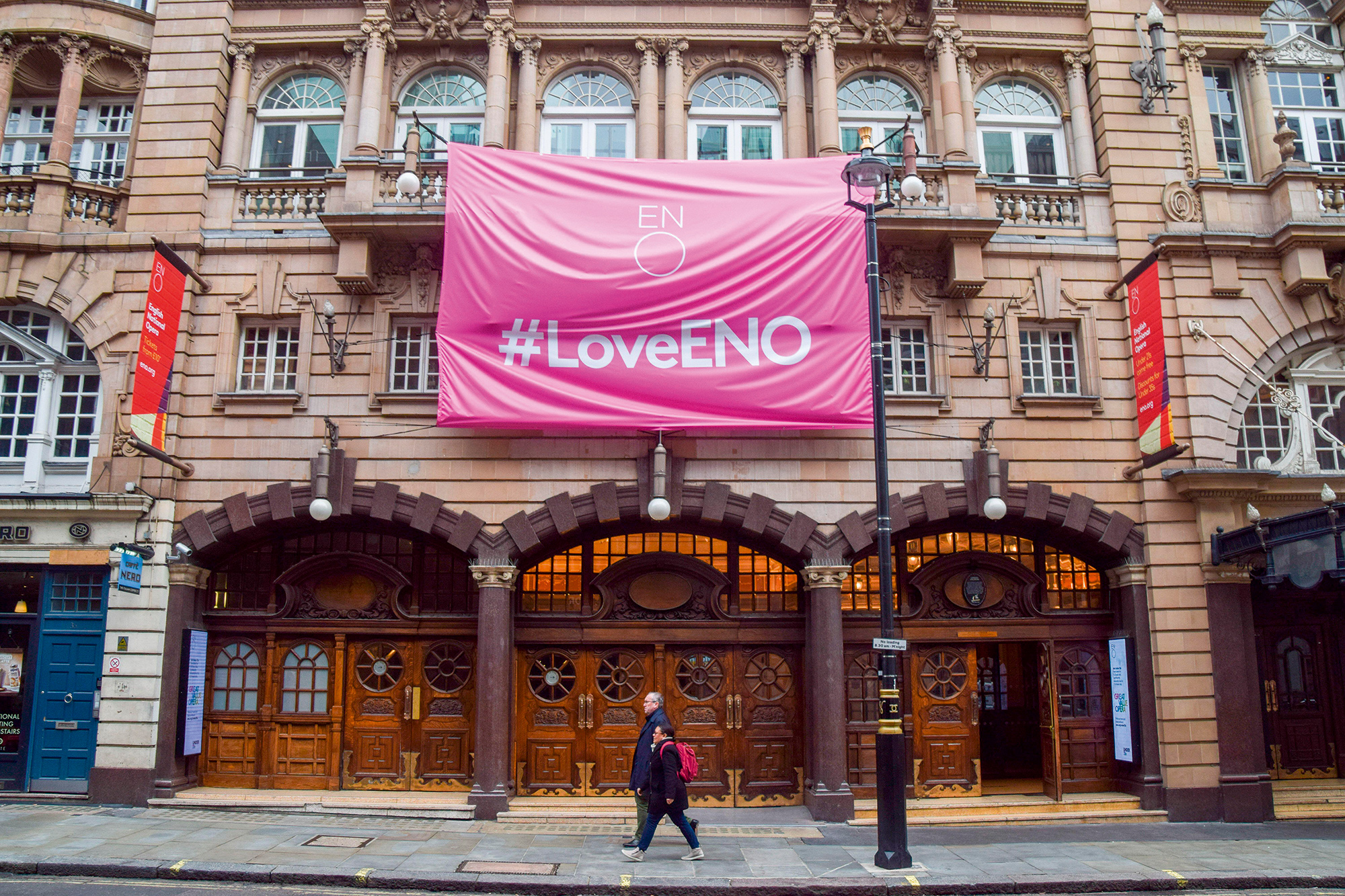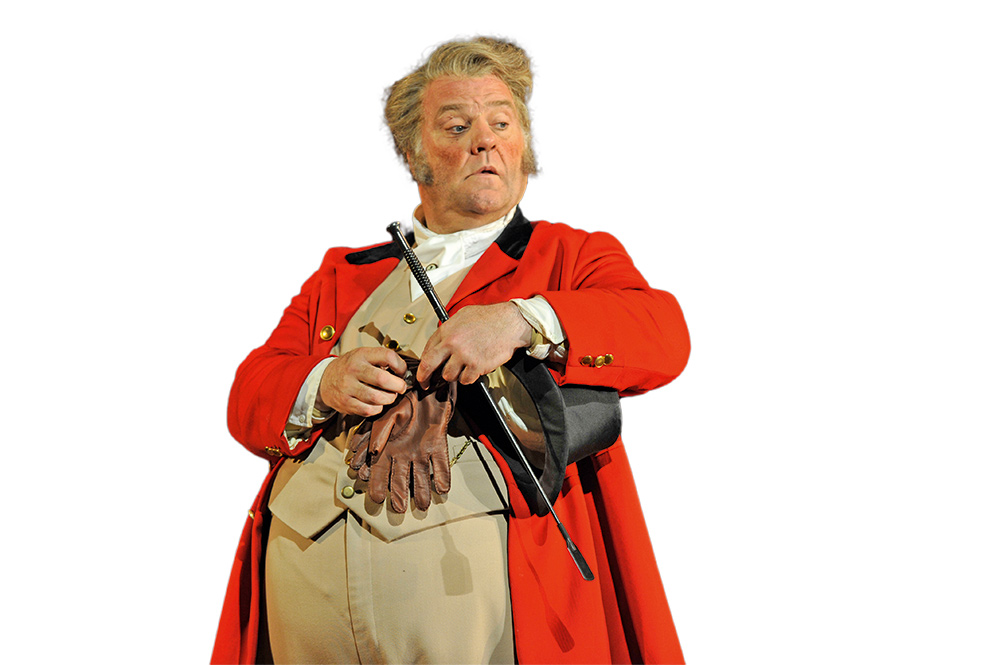How 'levelling-up' in the Arts has backfired for regional theatres: 'It's the guillotine, not the salami-slicer'
London and the South of England have long been the primary beneficiaries of Arts funding, but is the Government’s latest plan to ‘level up’ actually doing the opposite? Claire Jackson investigates.

There was an inevitability to the recent announcement that Glyndebourne would not undertake its usual tour this autumn. The East Sussex-based opera company, which has expanded its work in recent decades to include community projects and annual visits to locations such as Liverpool and Cambridge, was among the list of performing-arts organisations that have fallen victim to unexpected funding cuts. The changes are part of the biggest shake-up of Arts Council England (ACE) support since austerity measures were introduced after the 2008 financial crash, affecting a range of disciplines — particularly opera.
‘The maths was, sadly, quite simple,’ says Stephen Langridge, artistic director of Glyndebourne. ‘Our funding has been halved [from £1.6 million to £800,000] and we can no longer afford to go out on the road.’ The summer opera season, which is independently financed, has a long history of touring, bringing internationally acclaimed productions to towns and cities that may not have a local opera company.
From 1968, ACE supported an official programme that has historically involved schools performances, workshops in care homes and mentoring work. ‘It has gone on to become a really important part of the opera ecology in the UK,’ adds Mr Langridge. ‘Many artists cut their teeth on the Glyndebourne autumn tour.’
Liverpool receives a double blow, no longer welcoming a Glyndebourne visit, nor one from Welsh National Opera (WNO), which has also cancelled its tour amid funding cuts. The Cardiff-based company receives funding from both the Arts Councils of England and Wales and had previously performed regularly in seven regions in England, including Southampton, Plymouth and Liverpool. Now, its ACE budget has been reduced by 35% (£2.2 million). Such financial constraints obviously demand big operational changes, but none so great as those enforced upon English National Opera (ENO). Its ACE funding was removed in its entirety, to be replaced with a one-off allowance of £17m over three years in order for ENO to relocate elsewhere, with Manchester top of the list of potential new homes.
"The 2023–26 investment round saw 1,723 applications requesting more than £2 billion"
Manchester, it turned out, didn’t want London’s cast-offs. Perhaps the city had heard about the production of Salome that featured a giant My Little Pony, or took issue with Les Dennis’s performance in HMS Pinafore. And everyone seemed to have forgotten about Opera North, the excellent Leeds-based company that regularly visits Manchester’s Lowry Centre. The only rationale was that, as London had two main opera companies — the Royal Opera and ENO — the capital should share its toys.
Melvyn Bragg was among those who described this decision as ‘cultural vandalism’. If anything, it was argued, London needed more opera, not less. For context: Paris has three opera companies, as do Berlin and Vienna. ENO is recognised, and sometimes criticised, for its diversity and artistic risk. Its tickets — thanks to the subsidy — are some of the cheapest in the West End (entry is free for under 21s).
But not everyone can, or wants to, go to London. ‘We felt there was a need to have a fairer spread of funding across the country,’ ACE chair Sir Nicholas Serota told Radio 4’s Front Row. ‘We were instructed by the Government to move £24 million away from London per annum.’
Sign up for the Country Life Newsletter
Exquisite houses, the beauty of Nature, and how to get the most from your life, straight to your inbox.

This policy has a name: ‘Levelling Up’. In 2022, ACE and the Department for Digital, Culture, Media and Sport (DCMS) identified 109 locations, such as Wolverhampton, Peterborough and Oldham, that should be prioritised for additional support to develop their cultural provision. That meant that, when organisations applied for funding as part of the National Portfolio programme, which runs every three years, there was a bias towards outside London. The 2023–26 investment round was the most oversubscribed to date, with 1,723 applications requesting more than £2 billion. ‘It was an impossible task,’ admits Mr Langridge. ‘We’re relieved we received the funding we did, but of course we would have liked the full amount.’
The negative reaction to the scheme derives from the issue that it is hurting those it is supposed to be benefiting. In halving Glyndebourne’s funding, it’s not East Sussex that suffers (the company has devised a local programme in lieu of the tour), but locations such as Liverpool, plus freelance artists.
Although organisations including English Touring Opera and Birmingham Opera Company received a boost, there was news that Britten Sinfonia — based in the East of England, with residencies in Norwich and Cambridge — would forfeit all of its funding. ‘For us, it was the guillotine, not the salami-slicer,’ announced chief executive Meurig Bowen, adding that they are ‘mystified by this brutal decision’. The 138-year-old Oldham Coliseum has lost its entire ACE funding and faces closure at the end of this month, despite Oldham being one of the Government’s ‘Priority Places’.
When faced with such challenges, the performing-arts world did what it does best: make a song and dance. Sir Bryn Terfel started an online petition to the DCMS and protesters sang outside ACE’s offices. A consortium of 75 signatories — including Royal Opera’s Sir Antonio Pappano — wrote to The Times in support of ENO. On the Coliseum, #loveENO is emblazoned on a pink banner. Meanwhile, Darren Henley, ACE’s CEO, published a response in The Guardian, suggesting ENO should embrace new opportunities for ‘opera in car parks, opera in pubs, opera on your tablet’. Yet, in lockdown, it was ENO that hosted Europe’s first drive-in opera, at Alexandra Palace.
After announcing the cuts to ENO — in response to mounting pressure — ACE agreed to invest £11.46 million in it for the next financial year, with discussions in place for the following period. ‘This is only a year’s reprieve,’ says Stuart Murphy, ENO’s CEO. ‘Lots of questions remain about our future funding... we urgently need this agreed to give our workforce peace of mind.’
Crucially, conversations will involve how best to plan for a potential move. When Sadler’s Wells Royal Ballet — now Birmingham Royal Ballet — moved to the Midlands in 1990, the process, involving consultation with staff, took several years. Whatever the outcome, Mr Murphy believes it is important for ENO to maintain a London base. ‘We have started conversations with more than 10 cities about an ENO second base,’ he says. ‘It’s important it is funded to London levels so it can fulfil ACE’s levelling-up commitments.’
The elephant in the room is that, although the ACE figures appear generous, they have steadily declined in real terms. Running a large organisation is expensive at the best of times, but when large venues are part of the mix, operations teeter on a knife edge. There are many cases like Edinburgh’s King’s Theatre, which closed last year for a now-unaffordable refurbishment and may no longer be used for art at all. In robbing Peter to pay Paul, no artistic disciples will benefit.

Credit: Alamy Stock Photo
Jason Goodwin: 'As soon as I tried the suits on, we realised that they represented the Three Ages of Man'
Our spectator columnist discusses three suits, donated by the same man to a charity shop, which have seen him through

The tale of a ‘real-life’ Billy Elliot: How cricketer Alexander Campbell swapped batting for ballet
Today, Alexander Campbell is a principal at the Royal Ballet. But for a long time it seemed that his destiny

In Focus: The enduring appeal of Andrew Lloyd-Webber's 'The Phantom of the Opera'
Jack Watkins tells the tale of one of the West End's most iconic musicals, and how The Phantom of the

Joyce DiDonato: 'Lockdown was the sabbatical I really needed, but would never have given myself'
Singer Joyce DiDonato spoke to Henrietta Bredin about gardening, climate change and using music to propagate a topic.
-
 Good things come in threes: Sir Cecil Beaton's love of flowers, fashion and fabulous friends in a trio of exhibitions
Good things come in threes: Sir Cecil Beaton's love of flowers, fashion and fabulous friends in a trio of exhibitionsIt’s been 45 years since Sir Cecil Beaton died, but he has inspired not one, not two, but three new exhibitions this year.
By Annunciata Elwes Published
-
 Murder, 25 acres, and 'the magic of a bygone era' at this eight-bedroom home in Devon
Murder, 25 acres, and 'the magic of a bygone era' at this eight-bedroom home in DevonUpcott Barton is a family home steeped in history and comes with more than 5,000sq ft of living space.
By Penny Churchill Published